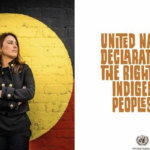Police Naming and Shaming Innocent People

It’s a terrible possibility, and it could happen to any of us if we’re unlucky enough.
Think about it. There’s been a senseless, terrible murder of someone you knew well. In the course of their investigations, police come knocking at your door. Despite your alibi, police decide that you’re a “person of interest” in the investigation, even though they don’t have enough information to arrest you.
“It should all be okay,” you think to yourself. “They’re just tying up loose ends. They’ll realise I’m innocent and that will be the end of it.”
But in the meantime, the police publicly announce that you’re a person of interest, and the next thing you know, your name is splashed all over the newspapers and TV, and your life will never be the same.
You may think this is a little far-fetched, but the sad reality is that it does happen.
Boyfriend named as person of interest in Penny Hill case
Earlier this month, Channel 7’s ‘Sunday Night’ program aired a story about the unsolved murder of a 20-year-old girl in the NSW central west.
In 1991, Penny Hill was working as a nanny in Coolah. Just days after starting her job, Penny was found unconscious on the side of a road, having been bashed and left for dead. She was taken to a Newcastle hospital but tragically passed away a few weeks later.
The crime remains unsolved, but a police officer recently named Hill’s then boyfriend of three weeks as a “person of interest”. This was reported by the television program interviewing the officer, and then reported in turn by various other media outlets.
Although the boyfriend had an alibi for the evening in question, and although his car was a different model from the one identified at the scene of the crime, police still publicly released his name and media organisations did the rest.
Being described as a “person of interest” really means that someone may simply have information that could assist the police. But when someone is named as a “person of interest”, the public tends to infer that he or she is suspected of committing the crime – especially after the media gets its hands on the name and adds its own spin.
The boyfriend has not been arrested, presumably because there is not enough evidence to link him to the crime. But now that his name has been published and he has been linked to the victim, he has been shunned by the public and even those close to him – and, like many before him, may carry the burden of the publicity indefinitely. As the saying goes, “mud sticks.”
What does the police media policy say about naming suspects?
The NSW Police media policy sets out the information that can be released to the media by police, and when that information can be released.
In the course of an investigation, but before an arrest has been made, information that police can disclose includes:
- The basic facts of the investigation.
- Information about the crime and victim so long as the victim cannot be identified.
- A description of the suspected offender (including car, weapons, clothes) but not the name of the alleged offender.
Once a suspect is arrested but not charged, basic details can be released (for example their age and where they are being held), but they are not supposed to be named.
Once the suspect is charged, the details of that charge may be released, as well as what the police will allege in court. Interestingly, the policy does not specify that the suspect can be named even at this stage, but their name will form part of the charge and the media will sometimes be able to get their hands on the police papers from police prosecutors and others in the criminal justice system.
When comparing the media policy to the disclosure of the suspect’s name in the Penny Hill case, it is difficult to understand how the police were able to name the boyfriend prior to a charge being laid, or even an arrest being made.
Are there any consequences for the media naming suspects?
For media organisations, there is always the threat of an action for defamation being taken against them for false reporting. In essence, defamation is legal action taken by a person for damage to their reputation.
Media organisations usually have legal advisers at the ready to cast an eye over stories that are to be published or broadcast, to ensure that the risk of legal action is limited.
But this doesn’t always stop the press from publishing information about investigations, especially those involving celebrities. In such cases, media organisations may come to the view that the benefits of a ratings winner outweigh the risks of being sued.
Is there ever any benefit in naming suspects?
There is an argument that no person should be publicly named as a suspect until and unless they have been found guilty in a court of law.
But Britain’s Director of Public Prosecutions said in 2013 that there is a benefit in naming suspects upon arrest because other victims may come forward if they knew that a suspect had possibly committed similar crimes. This would especially be true, he said, in cases of sexual assault.
However, he also said that any such naming should only occur in exceptional circumstances, after thoroughly weighing the potential benefits against the harm that may be caused to the suspect’s reputation. Other commentators have gone even further, saying that police investigations should be open and accountable, and that people should be named at an early stage.
Innocent until proven guilty
At the other end of the spectrum are those who point-out that all of us are supposed to be considered innocent until proven guilty. They argue that suspects should not be named publicly until and unless they are found guilty in a court of law.
Supporters of that view highlight the fact that once a person is publicly named as a suspect, their reputation will invariably be tarnished – even if they are ultimately vindicated by a court of law.
Consequences of being publicly named
Being named as a suspect can lead to the loss of employment, acute stress and depression, breakdown of relationships and targeting of family members – including abuse of innocent children.
Here in NSW, it is commonplace for the names of suspects to be ‘leaked’ to the media, even before that person has been charged with any offence.
Once charged, police will often make public statements about the case – which have been known to jeopardise the fairness of any ultimate trial, and have even led to trials being aborted or transferred to other locations. And it goes without saying that media reports will often portray the suspect as guilty before they have been tried, focusing on the evidence alleged against them rather than presenting material in a fair and balanced way.
All of this bolsters the argument that details that can lead to a suspect being identified should not be released by police or the media until and unless the person has been convicted in a court of law.
If you have been wrongfully accused of committing a crime, your best option is to consult an experienced criminal defence lawyer who can protect your interests and advise you of the best way forward.






